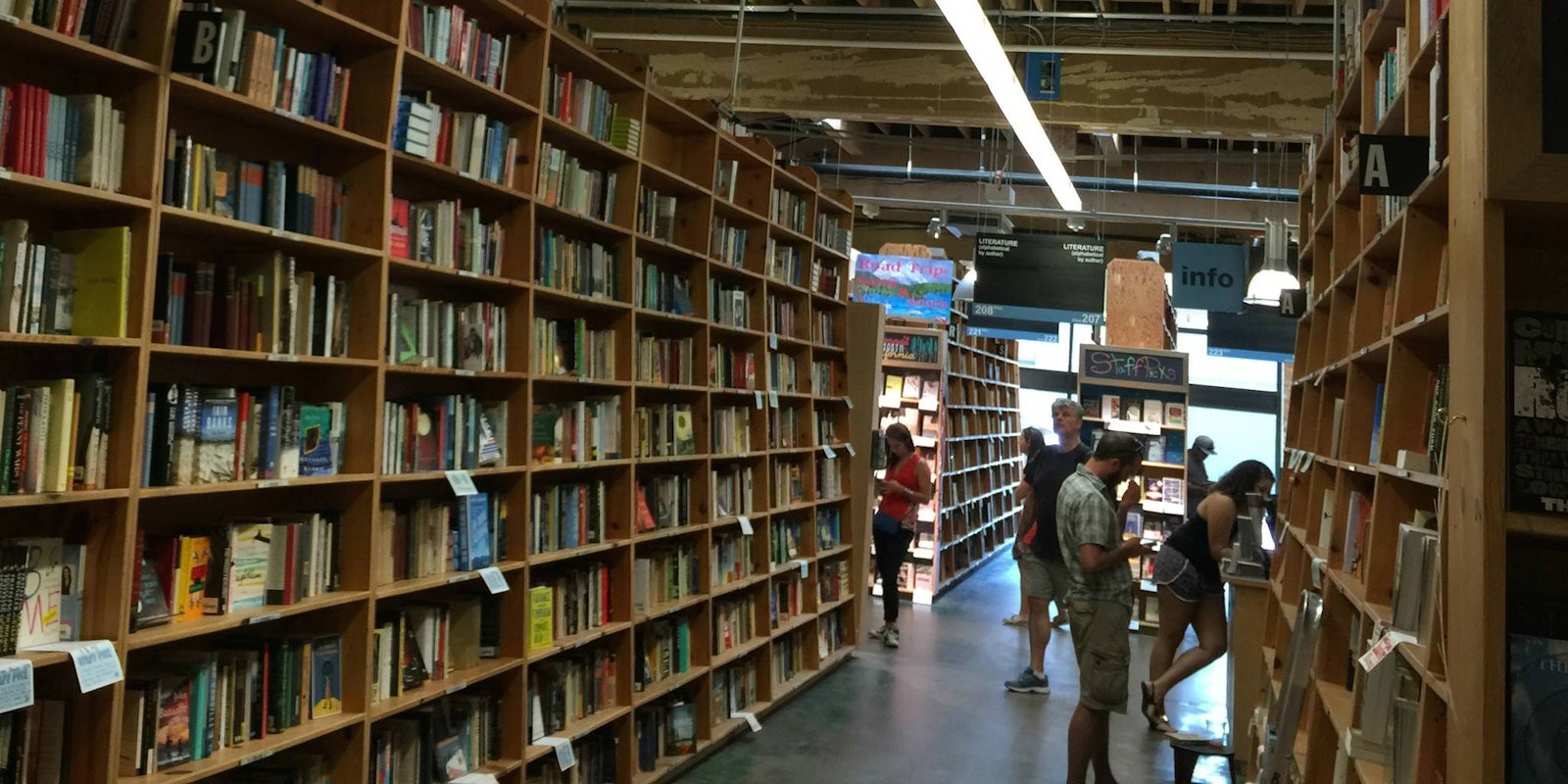Selling books is one of the hardest things I’ve done in my professional career. There’s no magic formula for success.
My husband often tries to perk me up by saying things like, “Honey you’ve written a really good book. That’s what matters.”
I feel guilty when I respond with cynicism: “Writing a good book is only 20 percent of selling good books.” Today’s bestsellers are born of a magic fairy dust creation of 10 percent inspiration, 10 percent luck, 10 percent critical acclaim, 50 percent brand alignment, and 20 percent just writing a damn good book.
Don’t get me wrong. Writing a good book helps: It sustains sales; it brings critical praise. It makes an author feel good about what they’ve created, it puts good book karma in to the universe, and it’s rewarding as hell.
I have friends who are wonderful writers, ones who can turn a phrase into an emotion in a way I could never dream, who can draw a reader away from the everydayness of their everyday and allow them to fully immerse themselves in between the pages. But plenty of those books have sold just a modest number of copies.
There used to be a more foolproof formula for creating best sellers. You could be granted instant bestseller status by Oprah. Getting in the New York Times was a good bet and is still wildly helpful. In fact great newspaper reviews used to create bestsellers all on their own.
These days, making a bestselling book is a new magical recipe of book reviews, fairy dust, and the approval of the social media influencer. And Instagram is leading the way.
But these days, making a bestselling book is a new magical recipe of book reviews, fairy dust, and the approval of the social media influencer. And Instagram is leading the way.
There was a single week last year when the hardcover of my novel The Knockoff was mentioned in the New York Times, the Skimm, People magazine and excerpted on Elle.com. All of these forces collided to make us a national bestseller. But as attention spans dwindled, it was social media that sustained reader interest.
My co-writer Lucy Sykes and I spent just as much time courting press for our book as we did courting potential Instagrammers and folks with large Twitter followings. As bookstores have disappeared and column inches dedicated to books have diminished, this is the new gold standard for how readers discover what they want to read next.
Serious book Instagrammers are becoming as powerful as some newspaper reviews. Getting your book on @SubwayBookReview, @BlueEyedBiblio, @bestbookgrams, @lastnightsreading, @politics_prose, @igreads, @thelithub, or @bookbaristas can be book selling gold. I’m partial to @hotdudesreading.
And then there are the bookstore and librarian Instagram accounts (check out the hashtag #librariesofinstagram) feeds. In a world where too few people still have a library card, librarians are flexing their invaluable book-recommending muscles through their beautifully curated Instagram accounts. The New York Public Library account (@nypl) is almost too chic for me to handle.
But the gold standard, the Instagram all authors crave is the “Reese Effect,” the celebrity Instagram, particularly the ones with a million-plus followers. A single shot on Reese Witherspoon’s Instagram with her hashtag #RWBookClub can catapult a book by an unknown author to the top 100 of Amazon. She recently touted the wonderful Opening Belle by Maureen Sherry.
https://www.instagram.com/p/BCUslxRrRK8/
But not all celebrity endorsements are created equal. It’s female celebrities that have the most clout when it comes to selling books. Bestselling authors Mindy Kaling, Lena Dunham and Emma Watson are among the handful that can move the needle.
It’s a shame that book reviews have lost the real estate they once occupied in most major newspapers and magazines. But too many authors are too quick to bemoan the “grammification” of the book industry. They mourn the loss of professional reviewers and look at the social media influencers with disdain for the pictures that have replaced the words. That’s closed-minded at best.
With fewer brick-and-mortar bookstores available for browsing, Instagram provides a virtual recommended shelf.
The greatest thing about books on Instagram is discovering books on Instagram. With fewer brick-and-mortar bookstores available for browsing, Instagram provides a virtual recommended shelf. How can you buy a book if you don’t know it exists? You can’t. So what if your first glance at a new release comes with a finely curated cappuccino, chocolate croissant, and vase of flowers under a graceful Valencia filter or through a friend’s #shelfie (a selfie with your bookshelf).
We buy books because we feel a connection with them. Because something in the title, on the cover, in the back-page copy speaks to us. Social media is merely a new tool to facilitate how readers discover new books. But more than that, it cultivates the most elusive demographic of all, the one publishers are constantly trying to tap, the new reader.
Word of mouth has long been a powerful tool for reading recommendations—readers telling other readers what to read. That’s what Instagram has become. Some readers may have more followers than others, but they’re all people who like books. And at the end of the day, more people who love books talking about loving books is better for the entire book industry.
Jo Piazza is an award-winning journalist, editor, digital content strategist and author. She is the author of Celebrity, Inc. Her novel with Lucy Sykes, The Knockoff, became an instant international bestseller. She is currently working on a memoir entitled How to Be a Wife. Follow her on Twitter @jopiazza.


